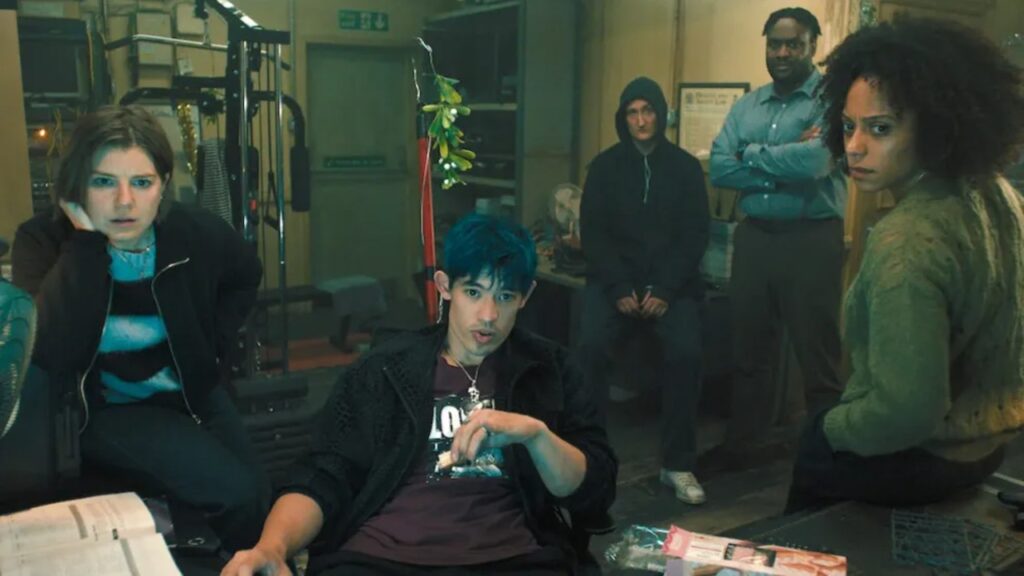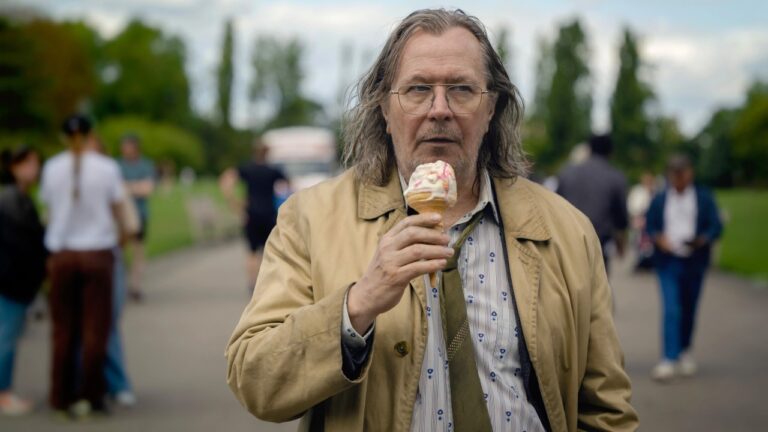Jackson Lamb from ‘Slow Horses,’ played by Gary Oldman, is a man who is not what he seems to be. First off, he has the appearance of someone who is very crude and repulsive, and has long since passed the point where he cares about anything. However, behind all this crassness, every single insult, belch, and puff from a cigarette is a sign of something far greater. Jackson Lamb is more than just the has-been agent wasting away in the forgotten office of MI5.
He is one of the smartest minds in the British intelligence community, masking his intellect with a façade of vulgarity and apathy. It is possible for the audience to look past the exterior and see the intellect and morality that is constantly at work, even when no one else is paying attention, thanks to the acting of Gary Oldman.
How Jackson Lamb Turns Indifference into Strategy and Mentorship into Method

This paradox is perfectly captured by Oldman. Underneath his disheveled hair, foul mouth, and chain-smoking habit is a man who is always calculating and aware of the game that is being played. The nonchalance of Lamb is a deliberate tactic. When he leans back in his chair with his feet up on the desk and half-closed eyes, he is already thinking several steps ahead. His brilliance as a player is in ensuring that everyone else underestimates him, which is precisely how he gets the better of them. He turns laziness into genius and disorder into order, and his world in the Slow Horses series reflects this.
Another side of intelligence is where Lamb treats the slow horses, the MI5 agents who are left on the sidelines because of their mistakes in the field. He is strict and sometimes harsh in his words, but there is a motive for it. He knows all the weaknesses of the agents he is training and uses it to improve them. The way he treats River Cartwright, the character Jack Lowden plays, is relentless, but it also has a motive. Lamb never gives comfort directly. It is always in the form of tough lessons and immense pressure. The audience understands that the skill of teaching lies behind the abusive work of the agent, showing how this agent changes dysfunctional agents into an amazingly effective team.
His relationship with Catherine Standish (Saskia Reeves) shows the more human side of his personality. She is one of the very few people who can approach him, and he allows her to. He also teases her about her drinking problem, but at the same time, there is an undertone of concern for her. His association with Diana Taverner, portrayed by Olivia Cooke in the later versions, is based on rivalry, respect, and intellect. They understand each other better than anyone else in the department, and therefore every episode between them is full of tension. Lamb’s character is also affected by his past experiences. The scars he acquired during the Cold War, and in particular Berlin, still linger on him. The torture of his partner at the hands of the Stasi shows the pain and betrayal he went through. Being forced to find out that his boss, Charles Partner, was a KGB mole placed him in impossible positions. When he killed the mole, he branded himself for life. Being sent to Slough House was not a form of punishment but a deliberate move. He wanted to work on the fringes so that he could protect others from the corruption that almost got him, and this is reflected in Oldman’s performance.
The Quite Architect of Manipulation, Loyalty, and Survival in Slough House

His loyalties to the slow horses are founded on this guilt and pain. He calls them losers, but he will protect them when things begin to get deadly. He protects them against the politics of MI5 and the schemes of Taverner, despite the danger this may pose to him. Lamb does not want heroes but wants people to live. The world of espionage is, for Lamb, more about survival than about being seen or noticed. The needs of the Slow Horses cast around him will be assisted by his role in their affairs, although this is not immediately evident. He also uses his own decay to his advantage. His drinking, smoking, and disheveled appearance are very effective by themselves. These give the impression of weakness, which makes it easy for him to move around without being detected. The people in MI5 headquarters do not give a second thought to his existence, and he uses this to his advantage. Lamb is operating all the strings behind the scenes while the more polished personas of the actors ignore this because they are too full of themselves. Jackson Lamb is a character whose deep complexity lies beneath the carefully crafted façade. Every single jab at others, burp, and act of laziness is but a cover-up for intelligence, cunning, and love. He has seen too much, has learned from betrayal, and protects those whom he is sworn to keep safe without expecting anything in return. Jackson Lamb is the kind of hero who goes against the definition of one, a man whose actions speak louder than words ever can. What is left is the enigma of who he is, exactly, past the charade. His interactions with the rest of the cast, workings of Slough House manipulation, and secret code of ethics give us an endless amount of fodder to discuss, which is exactly what makes him so memorable.




